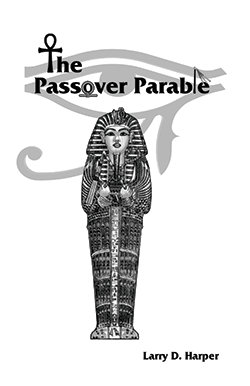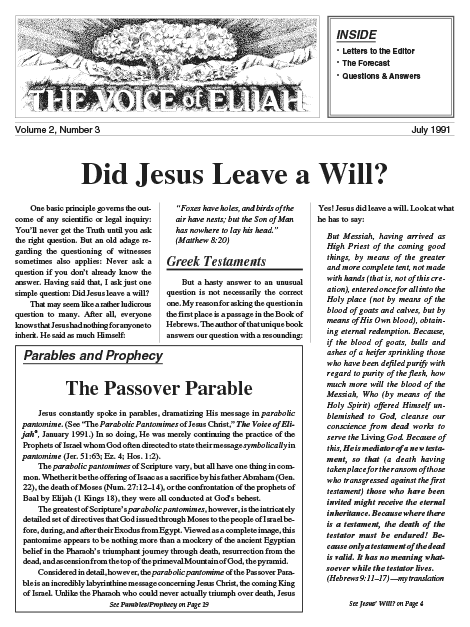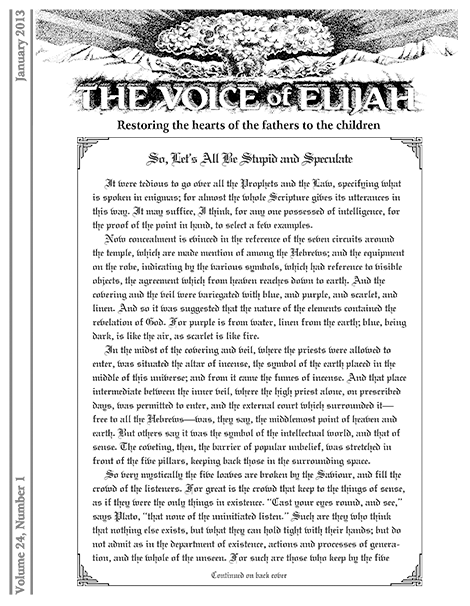Excerpt From Ebook
The greatest of all the parabolic pantomimes in the Scriptures, however, is the intricately detailed set of directives that God issued the sons of Israel through Moses before, during, and after their Exodus from Egypt. As with the parabolic pantomimes conducted by all the other Prophets, Moses conducted this parabolic pantomime under God’s direct supervision. When viewed as a complete parabolic image, the parabolic pantomime of the Passover Parable appears to be nothing more than a mockery of the ancient Egyptian belief in the Pharaoh’s triumphant journey through death, which culminated with his resurrection from the dead and his ascension from the top of the primeval Mountain of God, the pyramid. Considered in detail, however, the parabolic pantomime of the Passover Parable is an incredibly detailed message concerning God’s purpose in the death and Resurrection of Jesus Christ, the coming King of Israel. Unlike the deceased Pharaoh, who could never actually triumph over death, the Passover Parable parabolically declared beforehand that the crucified Christ would triumph. It insisted He would not only arise in the Resurrection but would also, in yet another parabolic pantomime, ascend from a mountain into the sky and go to Heaven, just as the Egyptians believed the Pharaoh did after death. But the Passover Parable also tells us that, as the Passover Lamb of God, Jesus Christ would give His life to protect those He leads out of bondage, through death, and into the Resurrection.
The Passover Parable provides the underpinning that ties together not only the message of the Pentateuch but the entire message of the Hebrew Scriptures as well. It reveals that Moses wrote concerning Jesus Christ, just as Jesus stated in His challenge to the scribes and Pharisees who refused to believe Him:
“For if you believed Moses, you would believe Me; for he wrote of Me.”
(John 5:46)
To understand the message that lies hidden in the parabolic pantomime of the Passover Parable, however, one must begin to think like an ancient Egyptian. For that is exactly how the sons of Israel who came out of Egypt thought; and they fully understood the parabolically stated message of the Passover Parable.
Larry Dee Harper, The Passover Parable, pp. 1–3
Ebook Details
| Digital Copy | Free |
|---|---|
| Hard Copy | $2.00 |
| Author | Larry Dee Harper |
| Pages | 37 |
| Publisher | The Elijah Project |
| Released | 2005 |
| Edition | Third edition |
| Language | English |
The Truth is Available
Check Out the Online Library
Browse through our library of newsletters and booklets—absolutely free!
Start Reading Now



